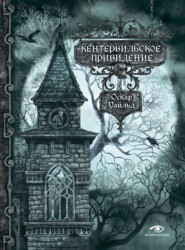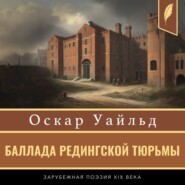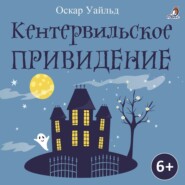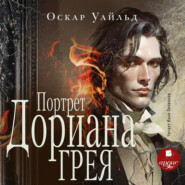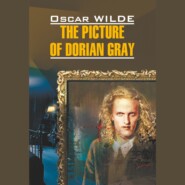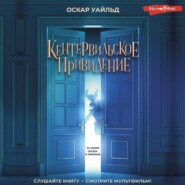По всем вопросам обращайтесь на: info@litportal.ru
(©) 2003-2024.
✖
Reviews
Настройки чтения
Размер шрифта
Высота строк
Поля
And from the blue, rough sea
The fishes flash and leap;
There is a life of loveliest things
O’er thee, so fast asleep.
In the deep West the heavens grow heavenlier,
Eve after eve; and still
The glorious stars remember to appear;
The roses on the hill
Are fragrant as before:
Only thy face, of all that’s dear,
I shall see nevermore!
It has its faults. It has a great many faults. But the lines we have set in italics are lovely. The temper of Keats, the moods of Matthew Arnold, have influenced Mr. Ghose, and what better influence could a beginner have? Here are some stanzas from another of Mr. Ghose’s poems:
Deep-shaded will I lie, and deeper yet
In night, where not a leaf its neighbour knows;
Forget the shining of the stars, forget
The vernal visitation of the rose;
And, far from all delights, prepare my heart’s repose.
‘O crave not silence thou! too soon, too sure,
Shall Autumn come, and through these branches weep:
Some birds shall cease, and flowers no more endure;
And thou beneath the mould unwilling creep,
And silent soon shalt be in that eternal sleep.
‘Green still it is, where that fair goddess strays;
Then follow, till around thee all be sere.
Lose not a vision of her passing face;
Nor miss the sound of her soft robes, that here
Sweep over the wet leaves of the fast-falling year.’
The second line is very beautiful, and the whole shows culture and taste and feeling. Mr. Ghose ought some day to make a name in our literature.
Mr. Stephen Phillips has a more solemn classical Muse. His best work is his Orestes:
Me in far lands did Justice call, cold queen
Among the dead, who, after heat and haste
At length have leisure for her steadfast voice,
That gathers peace from the great deeps of hell.
She call’d me, saying: I heard a cry by night!
Go thou, and question not; within thy halls
My will awaits fulfilment.
…
And she lies there,
My mother! ay, my mother now; O hair
That once I play’d with in these halls! O eyes
That for a moment knew me as I came,
And lighten’d up, and trembled into love;
The next were darkened by my hand! Ah me!
Ye will not look upon me in that world.
Yet thou, perchance, art happier, if thou go’st
Into some land of wind and drifting leaves,
To sleep without a star; but as for me,
Hell hungers, and the restless Furies wait.
Milton, and the method of Greek tragedy are Mr. Phillips’s influences, and again we may say, what better influences could a young singer have? His verse is dignified, and has distinction.
* * * * *
Mr. Cripps is melodious at times, and Mr. Binyon, Oxford’s latest Laureate, shows us in his lyrical ode on Youth that he can handle a difficult metre dexterously, and in this sonnet that he can catch the sweet echoes that sleep in the sonnets of Shakespeare:
I cannot raise my eyelids up from sleep,
But I am visited with thoughts of you;
Slumber has no refreshment half so deep
As the sweet morn, that wakes my heart anew.
I cannot put away life’s trivial care,
But you straightway steal on me with delight:
My purest moments are your mirror fair;
My deepest thought finds you the truth most bright
You are the lovely regent of my mind,
The constant sky to the unresting sea;
Yet, since ’tis you that rule me, I but find
A finer freedom in such tyranny.
Were the world’s anxious kingdoms govern’d so,
Lost were their wrongs, and vanish’d half their woe!
On the whole Primavera is a pleasant little book, and we are glad to welcome it. It is charmingly ‘got up,’ and undergraduates might read it with advantage during lecture hours.
Primavera: Poems. By Four Authors. (Oxford: B. H. Blackwell.)
notes
1
See A ‘Jolly’ Art Critic, page 112.
2
Shairp was Professor of Poetry at Oxford in Wilde’s undergraduate days.
3
The Margravine of Baireuth and Voltaire. (David Stott, 1888.)
The fishes flash and leap;
There is a life of loveliest things
O’er thee, so fast asleep.
In the deep West the heavens grow heavenlier,
Eve after eve; and still
The glorious stars remember to appear;
The roses on the hill
Are fragrant as before:
Only thy face, of all that’s dear,
I shall see nevermore!
It has its faults. It has a great many faults. But the lines we have set in italics are lovely. The temper of Keats, the moods of Matthew Arnold, have influenced Mr. Ghose, and what better influence could a beginner have? Here are some stanzas from another of Mr. Ghose’s poems:
Deep-shaded will I lie, and deeper yet
In night, where not a leaf its neighbour knows;
Forget the shining of the stars, forget
The vernal visitation of the rose;
And, far from all delights, prepare my heart’s repose.
‘O crave not silence thou! too soon, too sure,
Shall Autumn come, and through these branches weep:
Some birds shall cease, and flowers no more endure;
And thou beneath the mould unwilling creep,
And silent soon shalt be in that eternal sleep.
‘Green still it is, where that fair goddess strays;
Then follow, till around thee all be sere.
Lose not a vision of her passing face;
Nor miss the sound of her soft robes, that here
Sweep over the wet leaves of the fast-falling year.’
The second line is very beautiful, and the whole shows culture and taste and feeling. Mr. Ghose ought some day to make a name in our literature.
Mr. Stephen Phillips has a more solemn classical Muse. His best work is his Orestes:
Me in far lands did Justice call, cold queen
Among the dead, who, after heat and haste
At length have leisure for her steadfast voice,
That gathers peace from the great deeps of hell.
She call’d me, saying: I heard a cry by night!
Go thou, and question not; within thy halls
My will awaits fulfilment.
…
And she lies there,
My mother! ay, my mother now; O hair
That once I play’d with in these halls! O eyes
That for a moment knew me as I came,
And lighten’d up, and trembled into love;
The next were darkened by my hand! Ah me!
Ye will not look upon me in that world.
Yet thou, perchance, art happier, if thou go’st
Into some land of wind and drifting leaves,
To sleep without a star; but as for me,
Hell hungers, and the restless Furies wait.
Milton, and the method of Greek tragedy are Mr. Phillips’s influences, and again we may say, what better influences could a young singer have? His verse is dignified, and has distinction.
* * * * *
Mr. Cripps is melodious at times, and Mr. Binyon, Oxford’s latest Laureate, shows us in his lyrical ode on Youth that he can handle a difficult metre dexterously, and in this sonnet that he can catch the sweet echoes that sleep in the sonnets of Shakespeare:
I cannot raise my eyelids up from sleep,
But I am visited with thoughts of you;
Slumber has no refreshment half so deep
As the sweet morn, that wakes my heart anew.
I cannot put away life’s trivial care,
But you straightway steal on me with delight:
My purest moments are your mirror fair;
My deepest thought finds you the truth most bright
You are the lovely regent of my mind,
The constant sky to the unresting sea;
Yet, since ’tis you that rule me, I but find
A finer freedom in such tyranny.
Were the world’s anxious kingdoms govern’d so,
Lost were their wrongs, and vanish’d half their woe!
On the whole Primavera is a pleasant little book, and we are glad to welcome it. It is charmingly ‘got up,’ and undergraduates might read it with advantage during lecture hours.
Primavera: Poems. By Four Authors. (Oxford: B. H. Blackwell.)
notes
1
See A ‘Jolly’ Art Critic, page 112.
2
Shairp was Professor of Poetry at Oxford in Wilde’s undergraduate days.
3
The Margravine of Baireuth and Voltaire. (David Stott, 1888.)










